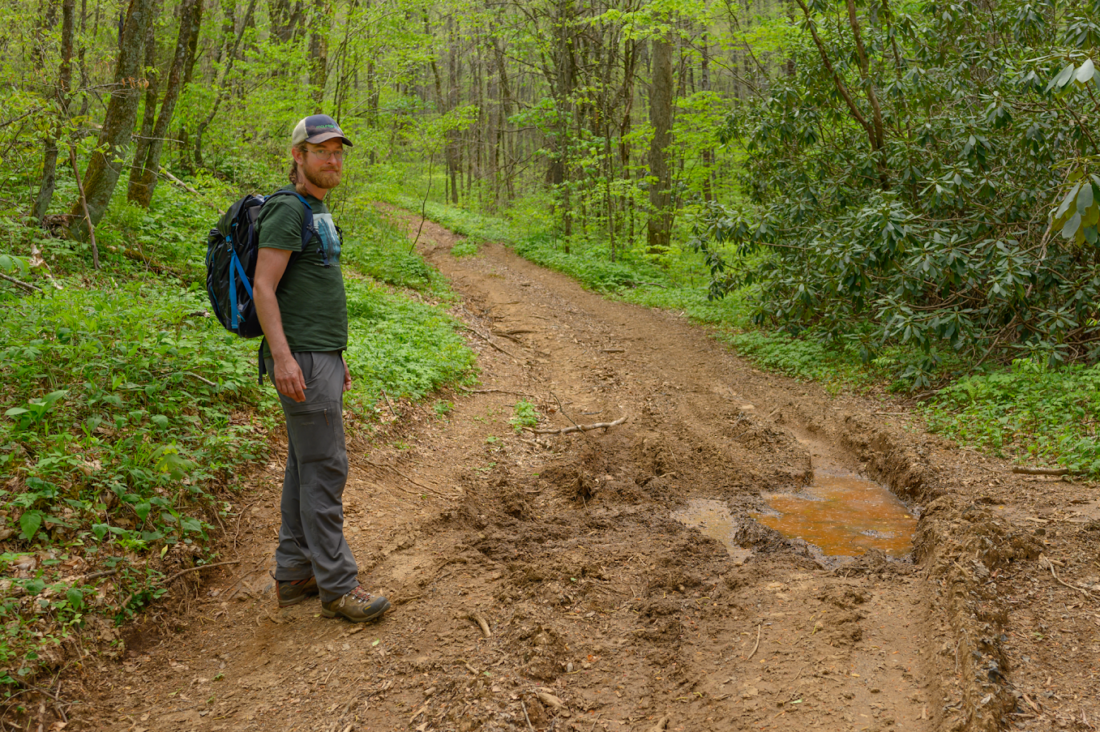Small firms claim exclusion from local public solar process
As spring turns into summer, Buncombe County, the city of Asheville and local school systems are seeking the sun: over 7 megawatts of solar energy projects, to be precise, for which the public entities released a joint request for proposals on April 8. Several local solar companies, however, claim that the terms of the RFP are shading them out of the process.
Mike Diethelm, president and founder of Asheville-based SolFarm Solar Co., says that the RFP requires all bidders be able to obtain construction bonds — a sort of insurance against uncompleted projects — of at least $10 million. That’s true even of smaller firms that would bid only on the city and county solar projects, the minimum allowed by the RFP, which he estimates at a total project value of just over $3 million.
Because of SolFarm’s size, Diethelm explains, the company hasn’t been able to obtain that financial guarantee. “[The bond requirement] knocks out so many local medium and small solar businesses, which we have a lot of in this town, and only opens it up to the big guys,” he says. While SolFarm is trying to partner with Washington, D.C.-based WDC Solar to meet the necessary bond limit by the bid deadline of Friday, June 19, he continues, success is far from guaranteed.
Meanwhile, Dave Hollister of Weaverville-based Sundance Power Systems says his firm isn’t planning to submit a bid. He agrees with Diethelm that the process is geared toward larger companies; local governments, Hollister argues, are mistakenly assuming that they’ll save money by bundling projects together.
“Any of the notion that there’s some economy of scale here is just a false notion,” Hollister says, because each of the 46 projects in the RFP will require individual engineering and safety plans. “It’s not like I can buy 10 acres of land and have one project that I design and install a utility-scale system on.”
In response to these concerns, Buncombe County sustainability officer Jeremiah LeRoy says that the RFP is designed with the county’s financial safety in mind. “The awarded bidder would not be required to bond all of the projects simultaneously, but meeting the aggregated limit requirement provides the county with assurances that the bidder has the financial capacity to take on a project of this size and protects the county should the bidder not complete the contract as required,” he says.
Forest Service gives final OK to Buck Project logging
Almost 800 acres of the Nantahala National Forest are slated for logging after a May 22 decision by the U.S. Forest Service. The Buck Project, named for the Buck Creek area of southeastern Clay County, will also involve prescribed burning on approximately 3,600 acres.
In a document announcing the decision, Andrew Gaston, ranger for the Nantahala forest’s Tusquitee and Cheoah ranger districts, said the project would increase habitat for species such as the golden-winged warbler by boosting the percentage of young forest. He also said that selective logging would improve the forest’s overall growth and develop food-producing trees for native wildlife.
Local environmental groups, however, blasted the project as irresponsible in a statement released May 26. “This decision ignores public input and support for an alternative proposal that eliminated the riskiest logging and protected clear-running and popular trout streams and old, biologically rich forests,” said Amelia Burnette, a senior attorney with the Southern Environmental Law Center’s Asheville office. “The agency fell short of its obligation to consider harmful impacts of its logging plan and disclose them to the public.”
Josh Kelly, public lands field biologist with Asheville-based nonprofit MountainTrue, added that the Buck Project ran counter to ongoing public input about revisions to long-term plans for the Nantahala and Pisgah national forests. “Instead of taking a collaborative approach that prioritizes ecologically appropriate and beneficial work, the federal agency is igniting controversy right in the middle of the plan revision,” he said.
Appalachian Trail Conservancy revises hiker guidance
Nearly two months after requesting the Appalachian Trail’s closure to prevent the spread of COVID-19, the Appalachian Trail Conservancy has issued new guidance for those seeking a walk in the woods. Although the nonprofit continues to recommend that hikers stay home, its guidelines provide best practices for outdoor activity during the pandemic.
“As warmer weather takes hold and some states’ stay-at-home orders are rolled back or expire, we understand that many people are anxious to return to public lands like the Appalachian Trail,” said Sandra Marra, the ATC’s president and CEO, in a press release announcing the guidance. “We believe the scientific information has become clearer on how to keep yourself and those around you safe from COVID-19, though we still encourage everyone to use an abundance of caution and practice social distancing wherever possible.”
According to the guidelines, hikers should carry a face mask and hand sanitizer at all times, avoid shared spaces such as shelters and dig catholes for human waste instead of using privies. Groups should consist of no more than six people and stay away from “well-known locations where there will likely be many visitors.”
Due to their need for repeated trips into populated areas, the ATC asks thru-hikers to continue postponing their hikes. However, the organization says that guidance will be revised if the COVID-19 infection rate flattens or drops in all states through which the trail passes, as well as if all trail closures currently in place are lifted. The current guidelines can be reviewed at avl.mx/76v.
Save the date
-

TAKE A LOOK: Citizen scientists participate in a 2019 bioblitz similar to the Madison County Bioblitz, which runs June 6-20. Photo courtesy of MountainTrue On Thursday, June 4, the Western North Carolina Sierra Club hosts a free webinar on electric vehicles. Retired automotive engineer Dave Erb will address “some of the extensive mis- and disinformation that dominates the public discourse” on the topic. More information and registration are available at avl.mx/75z.
- The inaugural Hendersonville Farmers Market is scheduled to take place 8 a.m.- 1 p.m. Saturday, June 6. The market, located at the Historic Train Depot on Market Street, will require face coverings for all shoppers and will space vendors 10 feet apart to comply with social distancing rules. More information is available at avl.mx/6z4.
- From Saturday, June 6, through Saturday, June 20, the Madison County Bioblitz invites residents to join a citizen science project cataloging the region’s biodiversity. Participants can record sightings of birds, insects, fish, flowers and other species through the iNaturalist smartphone app to help scientists understand what lives in the county and where. More information and registration are available at avl.mx/767.
- As part of the Pollination Celebration sponsored by Asheville GreenWorks and Bee City USA, Ruth Gonzalez of Reems Creek Nursery will host a free webinar on certifying pollinator gardens. At 10 a.m. Saturday, June 13, participants will learn how their gardens can qualify for Bee City USA recognition. More information and registration are available at avl.mx/65u.
- Warren Wilson College hosts a free webinar at 2:30 p.m. Thursday, June 18, about the college’s approach to land use in the context of climate change. Dave Ellum, Warren Wilson’s dean of land resources, will discuss regenerative agriculture, agroforestry, nontimber forest products and other topics. More information and registration are available at avl.mx/771.
Doing good
-

CLEANUP CREW: Volunteers sit aboard the Asheville GreenWorks Trash Trout in 2019; the litter-capturing device received $20,000 in the latest grant cycle from the Community Foundation of Western North Carolina’s Pigeon River Fund. Photo courtesy of Asheville GreenWorks On May 15, The Community Foundation of Western North Carolina announced over $143,000 in grants from the Pigeon River Fund for nonprofits in Buncombe, Madison and Haywood counties. Awards include over $34,000 to Marshall-based Mountain Valleys Resource Conservation and Development Council for stormwater improvements at local schools, $30,000 to the Maggie Valley Sanitary District for watershed protection and nearly $29,000 to MountainTrue for continued E. coli monitoring. More information is available at avl.mx/766.
- Throughout June, the N.C. Department of Agriculture and Consumer Services will treat three WNC counties for infestations of the invasive gypsy moth. Synthetic gypsy moth pheromones, which prevent male insects from successfully mating, will be applied at Mount Mitchell in Yancey County, as well as in Allegheny and Watauga counties.
- Veterans Healing Farm in Hendersonville is partnering with the Henderson County Soil and Water Conservation District and Winston-Salem based nonprofit Resource Institute to restore the banks of Shaw Creek. John Mashie, the farm’s executive director, says the project will both improve water quality and create a peaceful spot for veterans to connect with nature.
- West Asheville resident Don McAdam has developed an approach for converting gas-powered commercial lawn mowers to use electric power. A video tutorial and documentation for the roughly $3,500 conversion are available at avl.mx/765.



Before you comment
The comments section is here to provide a platform for civil dialogue on the issues we face together as a local community. Xpress is committed to offering this platform for all voices, but when the tone of the discussion gets nasty or strays off topic, we believe many people choose not to participate. Xpress editors are determined to moderate comments to ensure a constructive interchange is maintained. All comments judged not to be in keeping with the spirit of civil discourse will be removed and repeat violators will be banned. See here for our terms of service. Thank you for being part of this effort to promote respectful discussion.